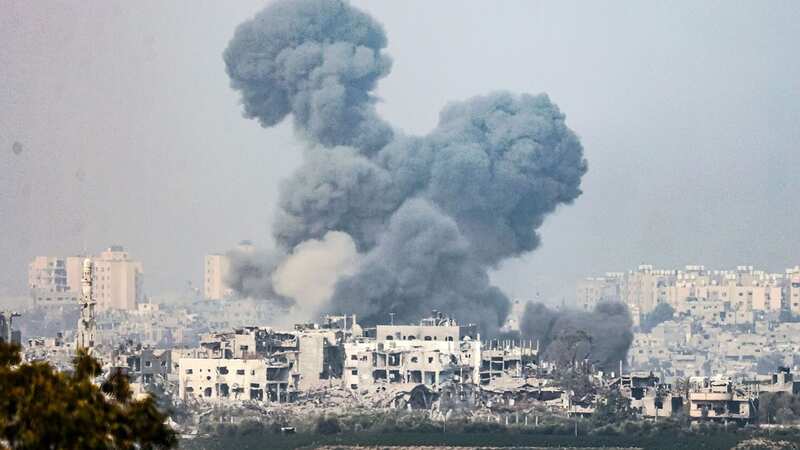What you need to know about six global wars, conflicts and risks in 2024

As wars rage across the Middle East and Ukraine, the prospect for a more peaceful year in 2024 remains bleak.
Global rivals have taken sides, linking up the two main conflicts and furthering the risk of wider violence. The Israel-Hamas struggle is backed by the US-led West, with Iran providing aid to Israel’s foes, including Hamas and Hezbollah. Russia is thought to have done deals with Iran and China – and even North Korea. And the UK and the rest of NATO is supporting Kyiv’s struggle for survival against Moscow’s invasion.
Experts fear the Red Sea will be a new focus of trouble, due to Iran-backed Houthis attacking Western shipping. And Iran yesterday underlined its goal of wiping out Israel after one of its top commanders was killed in a strike on Syrian capital Damascus. It came as Israel tries to stop Iran giving arms to terrorists attacking it.
Here, we analyse the main conflicts and risks directly affecting the UK...
Israel/Gaza
Israel’s war against Hamas is set to rage past the summer.
 Jake Paul calls on John Fury to make retirement bet for fight with son Tommy
Jake Paul calls on John Fury to make retirement bet for fight with son Tommy
But the US is desperate to persuade it not to launch ground attacks on Hezbollah on its northern frontier, which could explode if the West Bank, Lebanon, Iran and its proxies in Yemen hit back.
The diplomacy push is hampered by PM Benjamin Netanyahu’s right-wing government and its stance following the October Hamas atrocities against civilians.
Ukraine
Ukraine is struggling to make significant inroads in its counter-offensive but Russia’s forces have taken an almighty beating.
Winter slows fighting but Kyiv now has F16 jets and superior missiles.
This advantage could mean victory or at least force Putin to offer a deal.
A compromise would mean Kyiv losing territory but allow both sides to celebrate a partial victory.
North Korea
Kim Jong-un has again told his military to “accelerate” war preparations and is likely to continue weapons testing.
This is likely a bluff by the dictator, rather than a serious threat – but the US, which has more than 25,000 troops in South Korea, is monitoring the situation.
While the West does not really know Kim’s intentions – and this prediction could bite back – nuclear-armed North Korea remains a sideshow.
China
Intelligence agencies say while Russia is like a storm to be dealt with now, China is a longer-term threat more akin to climate change.
 Loved-up Brits can now marry in Las Vegas style express weddings - but in Dubai
Loved-up Brits can now marry in Las Vegas style express weddings - but in Dubai
Beijing’s ambition to re-absorb Taiwan is probably not possible for a few years, so a Chinese assault on the island nation remains very unlikely in 2024.
But if and when it comes, the conflict will be bloody for both sides and change the geopolitical landscape.
Iran
Iran is a headache for US as it supports the terror groups fighting and threatening Israel – Hamas, Hezbollah and the Yemeni Houthis.
The Houthi drones threat to Red Sea shipping must be tackled and the US has updated plans for attacking Iran directly. Yesterday, the Islamic Revolutionary Guard Corp vowed to wipe out Israel after the burial of Razi Mousavi, a general killed in an air strike in Syria.
Guyana
The UK is sending warship HMS Trent to support the ex-colony against a threat from Venezuela, which aims to annex the oil and mineral-rich Essequibo region.
With Guyana booming and Venezuela’s economy ailing, the latter’s President Maduro is under pressure, so this is one to watch. Israel’s war against Hamas is set to rage past the summer.
But the US is desperate to persuade it not to launch ground attacks on Hezbollah on its northern frontier, which could explode if the West Bank, Lebanon, Iran and its proxies in Yemen hit back.
The diplomacy push is hampered by PM Benjamin Netanyahu’s right-wing government and its stance following the October Hamas atrocities against civilians.
Read more similar news:
Comments:
comments powered by Disqus

































